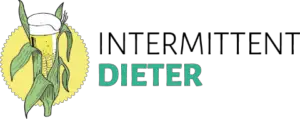I experimented with fasting quite a lot in the last few years. And I have to say I wasn’t always a disciplined faster. It came quite easy for me, so I never thought too much about what I should eat before starting a prolonged fast.
My last prolonged fast was epic though and a huge fail for me. Overconfident, I did almost everything the wrong way and paid the consequences heavily. I hadn’t done one meal a day fasting for two or three weeks beforehand, never paid any attention to what I ate during this time and, worst of all started fasting on a huge hangover (after a party with lots of alcohol, and a carb-rich fatty dinner).
That’s quite an extreme example, but that made me more aware of how to actually prepare for a prolonged fast. Keep in mind, as I often say it, fasting IS easy when you’re prepared and used to it, it’s not this big thing you should be afraid of.
But it’s not something you should take too lightly either, don’t jump into it after a big heavy weekend thinking “I’ve got to detox my body”, you’ll certainly fall short and you won’t try again.
So, what are the best foods to eat before a fast? You should get used to drinking a lot of water, drink nutrient-rich chicken stock, good fibers with chia seeds, lots of proteins (eggs, chicken) and healthy fat (salmon, avocado). Going low carb might also greatly help the transition to fasting.
That’s not all there’s to it, the foods are really important, but I’ll also talk about getting used to fasting and what to do ease a prolonged fast.
1. Water
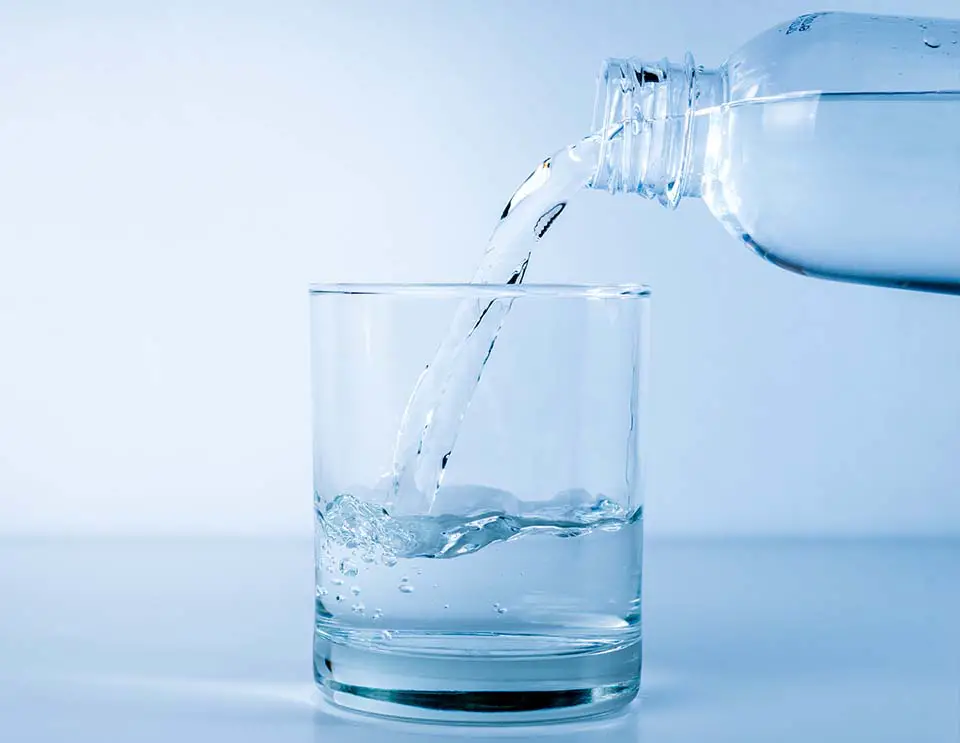
Duh! Okay, you might say it’s quite an easy one and it is. But what I mean by that is that if you’re not already used to drinking a lot of water, you should really start to make it a habit before a prolonged fast.
When I fast for several days, I drink an average of 4 liters a day (1 to 1.2 gallons). But as an intermittent faster, I’m already used to drinking a lot of water (on a regular day I’m around 2.5 / 3 liters, around 0.75 gallons). And you will see that when you’re fasting for several days, drinking water will become more of a reflex.
You’ll be thirsty most of the time, feel dry mouth, so it’s not likely you’ll forget to hydrate yourself. But drinking 2 liters against drinking 4 liters can make quite a difference in helping you get through the fast. I’ll talk about it later, but to ease water consumption, you can supplement it with some lemon juice or apple cider vinegar.
It’s sometimes easier to drink something less bland, most likely after a few days you’ll start craving the taste in your mouth. And once you’ll be fasting, hydrating a lot might help you prevent fatigue, dizziness, headaches, dry mouth, etc.
2. Chicken stock
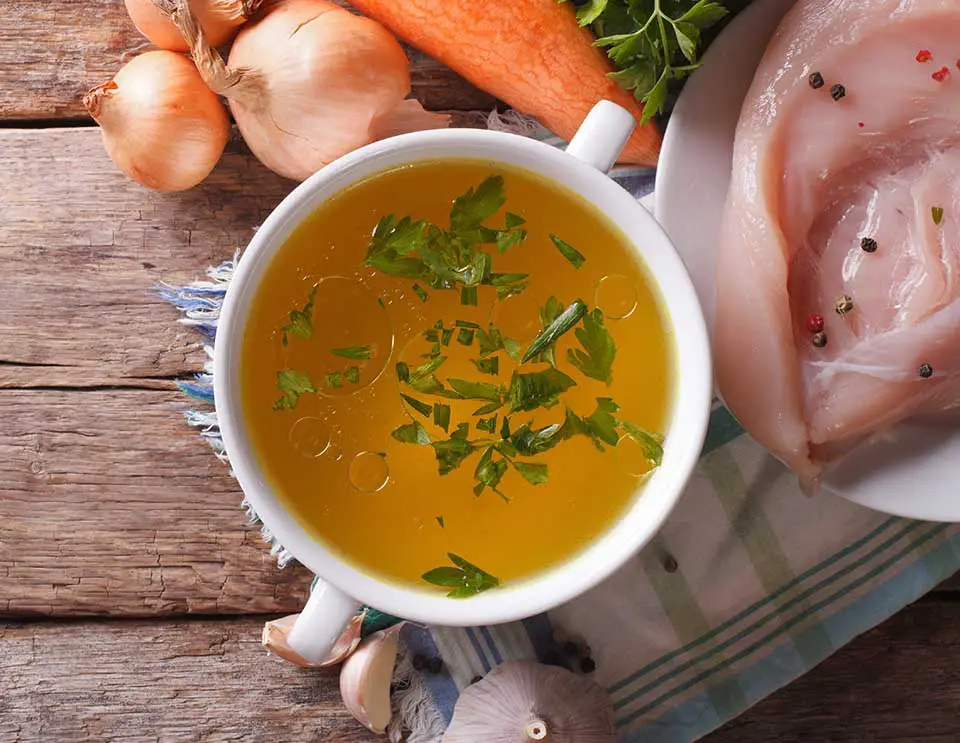
I’m referring here to chicken stock, or chicken bones broth, not chicken broth. Chicken broths are generally made out of meat cooked in water with some herbs and seasoning, for a short amount of time (1h to 1h30). While stocks are cooked longer (several hours) and made from bones, not meat.
A chicken broth will be lighter, with fewer calories, fat, and carbs. But also, a lot less of the great nutrients you’ll get from chicken stock.
A chicken stock we’ll be higher in proteins and good fat, and contains such important electrolytes and vitamins as:
- Potassium
- Sodium
- Magnesium
- Calcium
- Iron
- Folate
- Vitamin B
Packing your body full of nutrients before starting a fast is really important since they’ll be depleted during it. You could always try taking some supplements on the fast to alleviate this effect.
But even on a few days (no more than a week) water fasting, you should be okay without any extra nutrients. Chicken stocks also have some proteins, but that’s not why I would recommend it in the first place.
I’d advise you to make the broth yourself if you can, but you can also buy good organic chicken stock on Amazon like this premium one from The Flavour Chef or this less expensive organic stock from FCV.
It might seem expensive, but I would advise against non-organic low-price chicken stock made with GMO packed birds. And I would also avoid the fat-free ones. Chicken stock has good healthy fat!
3. Chia seeds
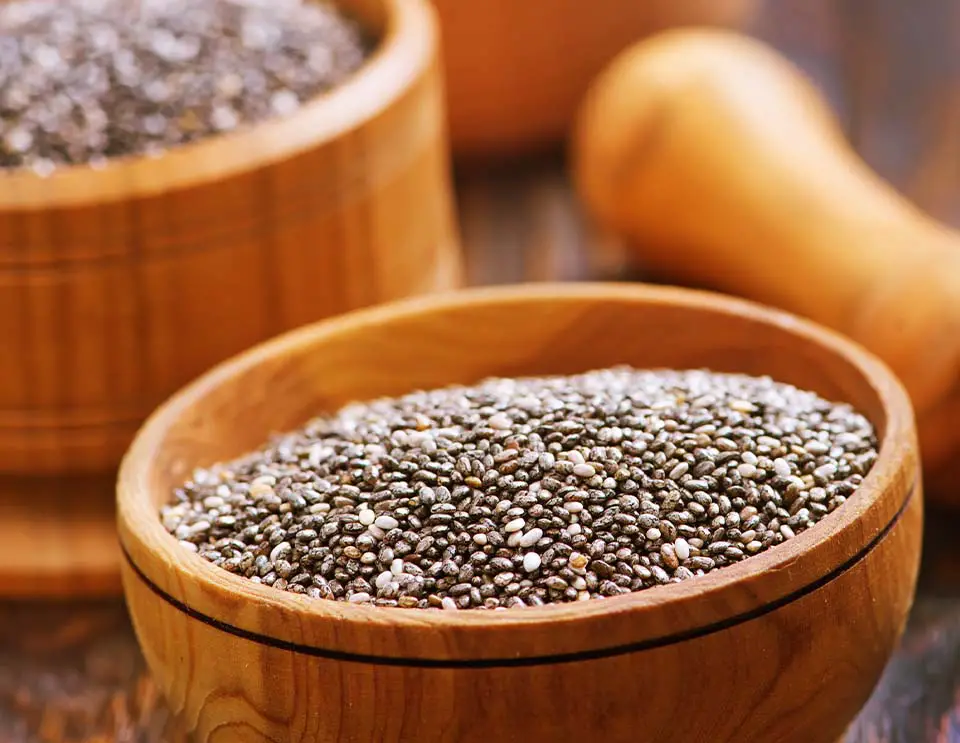
That’s awesome food and it’s known to have many, many benefits. Chia seeds are basically fat and fibers. The composition is the following:
- 40% of fibers
- 15% of proteins
- 35% fat
The rest is water. What’s interesting is that more of 40% of chia seeds are carbs, but most of it is actually fibers. Fiber doesn’t rise either insulin or blood sugar. This makes chia seed definitely a low carb food and your body won’t have to digest 95% of it. Some think that chia seed being so low carb, it wouldn’t event stop autophagy – your body burning fat – on a fast.
Plus, it’s so high in fibers that it can absorb more than 10 times its weight in water. Meaning it’ll become like a gel expanding in your stomach, increasing fullness. Which would help you eat less.
When you’re preparing for a fast, eating more fibers, which keeps your gut flora well-fed and helping your body feeling less hungry, thus eating less, are a great way to slowly adapt to less food.
Chia seeds are also known to be full of nutrients, which you’ll deplete pretty quickly when fasting:
- Calcium
- Magnesium
- Manganese
- Phosphorous
- Zinc
- Potassium
- Vitamin B1, B2, B3
It’s also, as I stated earlier, rich in proteins. Since you’ll be fasting, it’s important to have enough proteins beforehand. This could prevent some muscle loss. You shouldn’t worry too much about muscle loss when fasting if you keep exercising and moving during the fast, but if you’re lethargic, proteins will be important to avoid burning muscle instead of fat.
There are many other good aspects to chia seeds and the cherry on top is that they’re almost tasteless, you can put it anywhere you want, and everything will still taste pretty good.
4. Kale
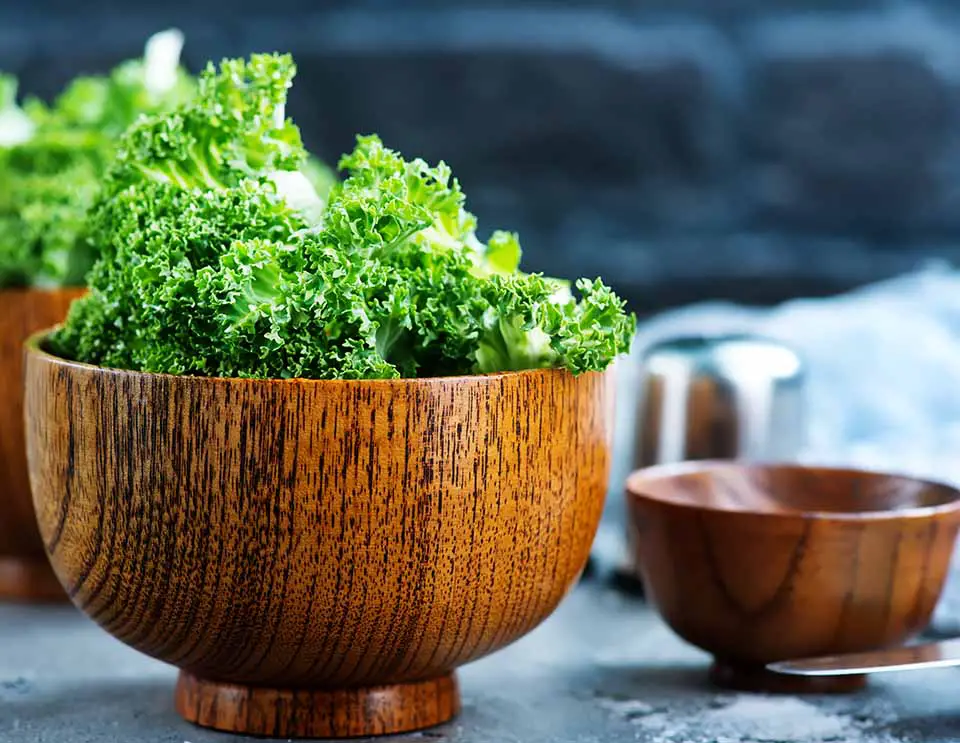
Like chia, kale’s been the new kid on the block these last few years, with kale smoothies popping up in every health blog. And there are good reasons for it. Kale is one of the most nutrient-dense food on the planet, just like chia seeds.
Here are some of the great electrolytes and vitamins you’ll find in kale:
- Huge amounts of vitamins (A, K, C, B6)
- Copper
- Manganese
- Potassium
- Calcium
- Magnesium
As I said, kale is an excellent way to pack up a lot of vitamins and nutrients before a fast. Kale is also very low calorie while really high in water. Which means it has a very low energy density.
Since it’s also high in fiber, kale might make you feel satiated on a very low-calorie intake while being easy to digest.
5. Eggs
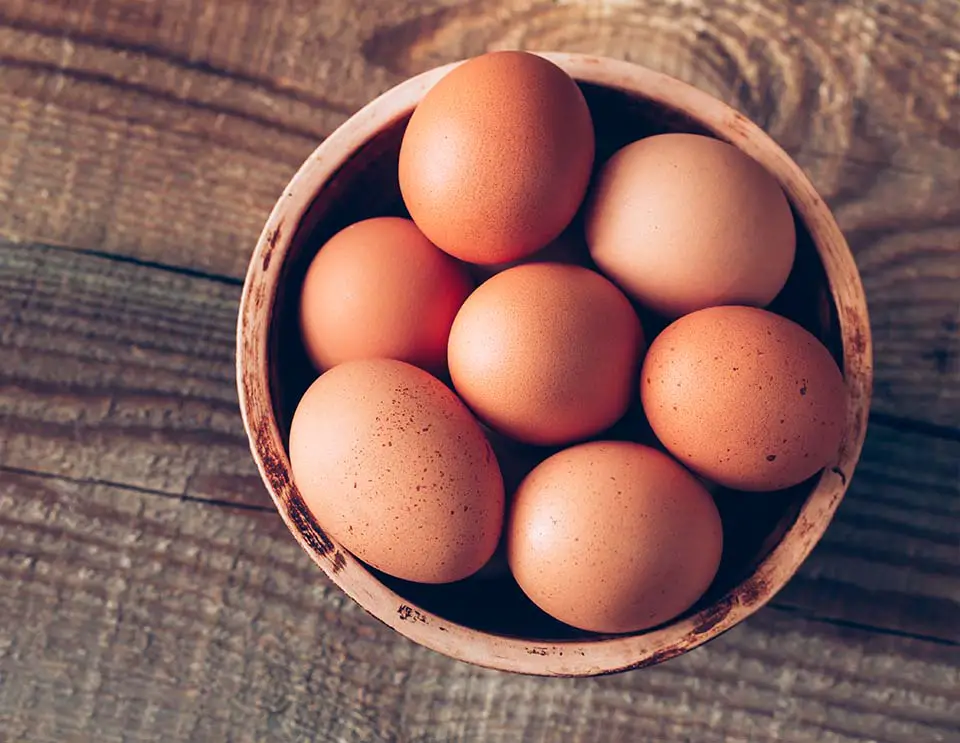
I mentioned it before but packing your body full of proteins is a good way to prevent muscle loss when fasting. And when it comes to getting proteins, not many foods beat the very much-loved egg.
Eggs are good, you can put them in any dish, in any shape or form, they’re always delicious. And it’s an amazing source of protein and amino acids. One egg contains these nutrients:
- Protein
- Phosphorus
- Selenium
- Vitamin A, B12, B2, B5
Plus, it’s almost 15% protein, very low carb and it contains all 9 essential amino acids. Your body needs 20 amino acids to function properly, but only nine are considered essentials. They’re called essential because they cannot be made from your body, while unessential amino acids can.
The 9 essential amino acids are:
- Histidine: important for your immune response, sleep/wake cycles, sexual function, and digestion
- Isoleucine: involved in muscle metabolism, also important for immune function and energy regulation
- Leucine: important for blood sugar regulation, muscle repair, wound healing and in production growth hormone
- Lysine: used for hormone and enzyme production, calcium absorption and protein synthesis
- Methionine: plays a big role in detoxification
- Phenylalanine: plays a big role in the production of other amino acids
- Threonine: important for the skin and connective tissue, also for immune function and fat metabolism
- Tryptophan: Helps regulate sleep, mood, and appetite.
- Valine: stimulates regeneration and muscle growth, plays a big part in energy production
Basically, when you’re eating eggs, you’re eating the best protein available. As I already stated, helping muscle growth and facilitating muscle repair by getting lots of good proteins before a fast is a great way to avoid muscle loss on the first days if you don’t exercise.
6. Healthy fat
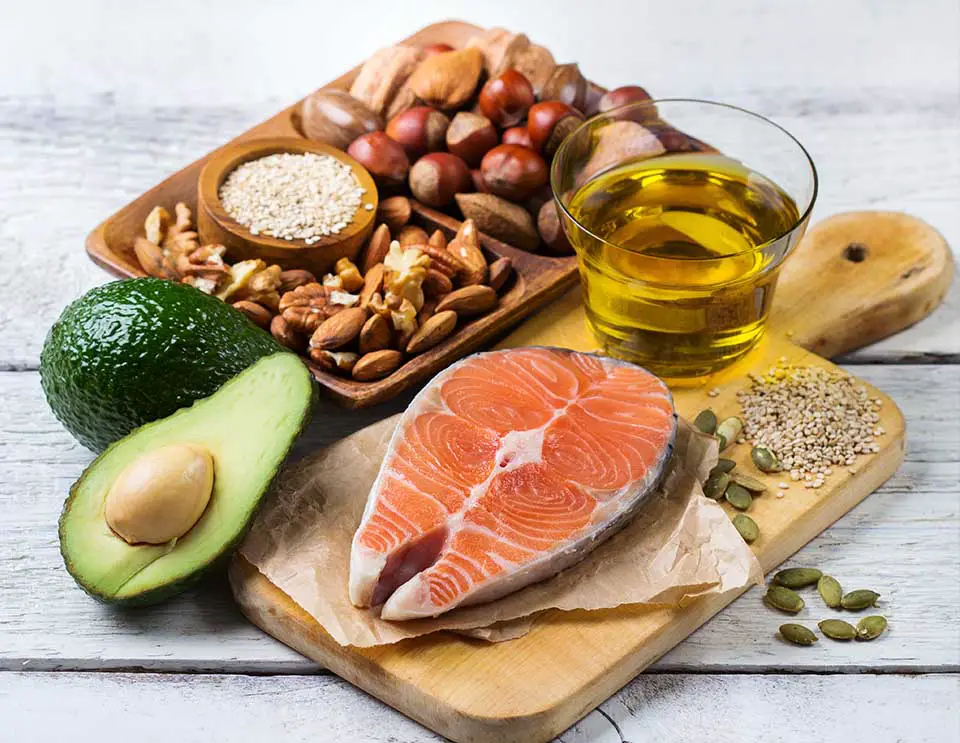
This means avocado, fatty fish like salmon, sardines or mackerel, nuts, almond, chia. The idea when eating good fat is that you’ll basically make the transition between low carb diet to plain water-fasting, which could be easier than jumping right into it.
Your body will adapt to the overall lack of carb and it might help, when you’ll be fasting full gear, to get through the keto flu. Keto flu can make you feel dizzy, tired, give you headaches, and is basically your body adapting to ketosis, which means it’ll turn to your ketones, found in stored fat, for energy instead of carb intake.
When eating low carb, you’ll deplete the glycogen stores the body does from glucose faster and reach ketosis maybe a few days earlier. Keto diet is hard to follow, but at least you get to eat and palate something else than water or coffee.
When you’re fasting, you’ll see that hunger might not always be the main problem, the lack of actually chewing and tasting food can be quite hard too.
So, if you prepare your body to be in ketosis faster, some of the difficulty you’ll experience when transitioning to it we’ll appear earlier and might facilitate the fast.
How to prepare for a prolonged fast?
To clarify, when I talk about fasting, I’m talking about water fast. Meaning you can drink water, black coffee or tea with no sugar or cream, and that’s it. Well, I’ll actually talk about two other things you can drink to help on a fast later in this article.
But that means no vegetable broth, for example, plain, simple, fast. What you need to do before a fast is first to get used to spending extended periods without eating. You first have to try intermittent fasting, meaning you don’t eat anything from dinner until lunch.
During that time you water fast. If you can’t do it and feel bad around 9 o’clock, eat something. And try to beat this time the next day. Even if you’re used to getting breakfast, you should be able to fast for 16 to 18h after a week.
After that, try not eating for 24 hours. Water fast from 8 pm to 7 pm the next day. Again, gradually extend this period until you reach 24h if you can’t do it on the first try. Once you’re able to do all this, you’ll have some habit of smaller fasts and that will be a great help for a longer one!
The week before the fast, try not to indulge in alcohol or high carbs, try to eat some of the food I talked about here and, as I said before, keep it low carb and easy to digest. You can also have some dairies like yogurt which is good for gut bacteria.
If you want, you can try and eat only one meal a day during this week, to really get into it. That would reduce your calorie intake, help your body get used to eating even less and also transition slowly.
As I said, get used to drinking lots of water, drink all the time, even when you’re not particularly thirsty. It’s important to get enough proteins, but even more, on low carb, to eat lots of healthy fat while staying away from carbohydrates.
Then you should be pretty good to go!
How to ease a prolonged fast without breaking it?
One thing that’s hard with fasting is the lack of chewing and tasting food. I never really feel hungry, I just crave for good, tasty, crunchy food.
As I said on a water fast you can drink water, black coffee, and plain tea. Those are sure drinks, no insulin response guaranteed, no way to break your fast by drinking only that.
But that’s pretty restrictive, even for a week and it can get tiresome after no longer than two days. That’s why you could add some good stuff that should not break the fast.
Bulletproof coffee
I already talked about it in some of my other posts, I even did a full resource on the best mug to buy for bulletproof coffee. In its most simple form, bulletproof coffee consists of coffee, with added healthy fat. I personally use MCT oil and Ghee, which tastes great.
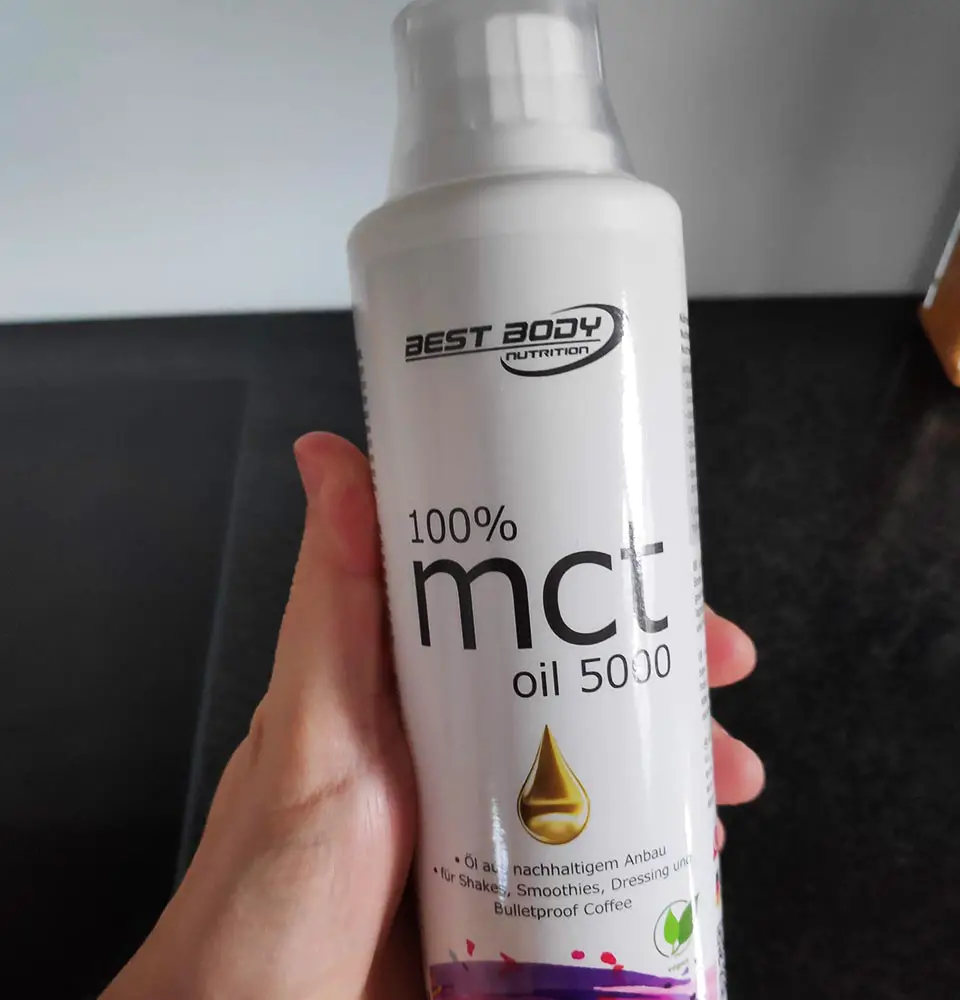
I did a full article on the effects of bulletproof coffee on a fast, and after some researches, I discovered that it does technically break a fast. Since you’re actually getting some calories from it. It could even prevent autophagy. But it has other benefits, if you want to know more about it, check my complete article.
So you might think it’s a no-go, but it depends. If you’re doing a prolonged fast more for weight loss than for spiritual/detox results, you could consider adding it to your morning coffee, since it won’t kick you out of ketosis and prevent fat burning. It could even help with the side effects of ketosis at first, by putting you through it faster.
If you’re curious, you can also take a look at some of the ones I’ve selected in my resource on the supplements I recommend for fasting. Some people also add butter or spices (cinnamon, Curcuma).
Apple Cider Vinegar
I also covered apple cider vinegar (ACV) on my article on the 11 best foods to break a fast. On a technical level, ACV does contain some calories so it could potentially break a fast. But a few drops added to a cup of water really won’t hurt, and it’s beneficial effects easily outgrow this technicality.
I actually advise in my article to take apple cider vinegar before breaking the fast. This way it’ll stimulate the digestive tract and make you feel fuller, among a lot of other advantages.
Drinking it diluted in water, with some salt, could be a great way to get some sodium intake and help regulate alkaline PH levels (acidity). You can also add some lemon juice to it. This’ll help fat burning and boost your metabolism.
You’re free to mix those ingredients to your taste, but none of that should kick you out of ketosis, even a bit of added lemon juice which actually contains some calories (a very small amount).
Conclusion
Everybody’s different and there’s not ONE right way to prepare for a fast. You shouldn’t obviously eat only what I mentioned in this article. But it’s good to get an idea of what’s a great way to prepare for a fast and what foods can help with that.
Even if you don’t follow some of these rules, even if you end up trying and failing your fast, don’t beat yourself up. Just wait until you have a few days with no social activities, gradually prepare your body and try again.
Nobody’s judging you, trying is already a lot. Even though I talked mostly about food, nutrients, proteins and all that, the determining factor to being able to not eat for a whole week, for example, is your mindset. If you’re set on it, there’s a good chance you’ll do it.
Just don’t start it on a hangover, please, I’ll guarantee you’ll regret it!
